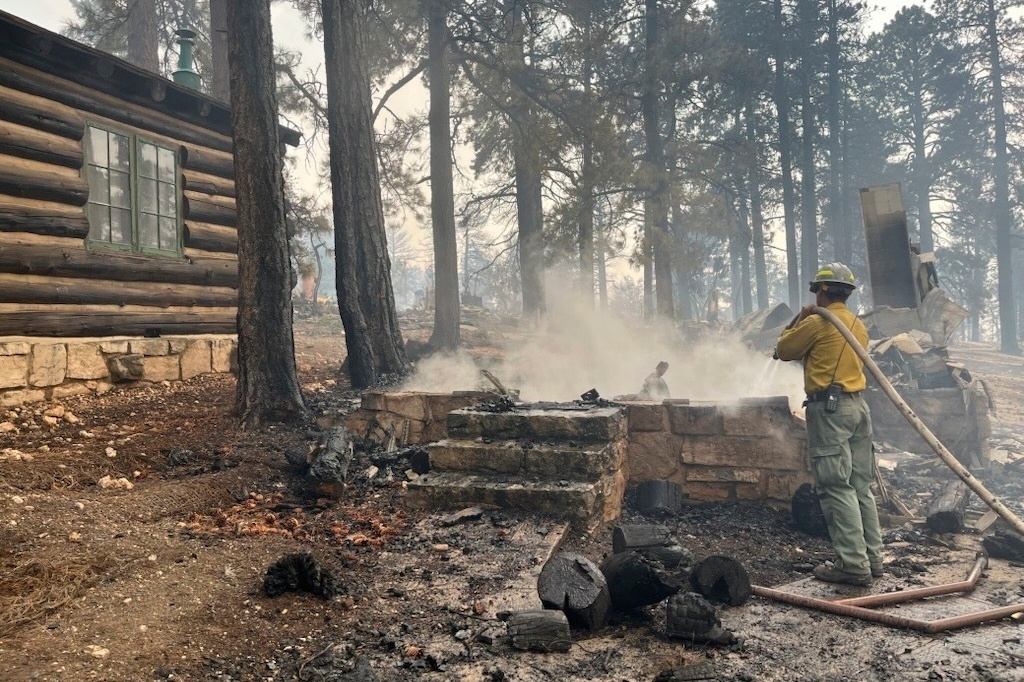
Colorado Democrats won't move ahead with a plan to ban gas-powered lawn equipment in areas with poor air quality in 2030, opting to rely on financial incentives to encourage the switch.
State Sen. Chris Hansen, a Democrat representing Denver, proposed the ban as one piece of a sprawling climate bill to reduce local air pollution and cut greenhouse gas emissions. He submitted an amendment to remove the provision during a Senate committee hearing Tuesday, saying it had become a "distraction."
"Battery technology is improving so rapidly that it's not going to make much difference. Consumers are going to want an electric mower, trimmer, et cetera because it's a better, cheaper, faster option," Hansen said.
The shift is the latest example of Colorado Democrats falling in line with Gov. Jared Polis' climate strategy.
The Boulder Democrat, who faces re-election later this year, has pushed to de-carbonize Colorado's economy with an emphasis on incentives over strict regulations. Hansen acknowledged his decision to amend the bill came after a "robust conversation with the administration."
"I know where the governor stands of different provisions and I think we're going to get to a good place as we send it to his desk," Hansen said.
Conor Cahill, a spokesperson for the governor’s office, did not address whether the administration had pushed for an amendment to remove the ban, but he said Gov. Polis will continue to monitor the legislation as it moves through the Capitol.
“The governor believes Coloradans will continue to make smart decisions to protect the air we breathe and should be rewarded for choosing affordable and reliable electric alternatives which are emerging in the free market,” Cahilll said.
Landscaping tools are some of the largest sources of ozone ingredients in metro Denver.
The original version of the legislation would have banned the sale of gas-powered lawn equipment in areas that aren’t meeting federal ozone standards in 2030. The amended bill still includes a section requiring state environmental regulators to develop a rebate program to cover up to 30 percent of the cost of electric alternatives.
Both provisions were designed to limit one of the largest sources of ozone ingredients in metro Denver. Unlike car engines, gas-powered landscaping tools tend to rely on two-stroke motors burning a mixture of oil and petroleum.
The result is a potent air pollution machine. According to the California Air Resource Board, operating a commercial leaf blower for one hour creates as many smog-forming compounds as driving a car from Los Angeles to Denver. Data from the Regional Air Quality Council, the lead air quality planning agency for metro Denver, show lawn and garden equipment accounts for about 9 percent of the region's local, human sources of ozone ingredients.
Some progressive cities and states have responded to the problem with strict regulations. Last year, California air regulators voted to prohibit the sale of new gas-powered leaf blowers and lawnmowers starting in 2024. The tools are already illegal in Washington, D.C.
While Hansen's original plan for Colorado was less aggressive, it met fierce resistance from Republican-aligned interest groups, ranchers and local governments. During the committee hearing Tuesday, Scott James, chair of the Weld County Board of Commissioners, praised Hansen for scrapping the ban and leaving the incentive package.
"We believe this is an excellent starting point for a pilot program that could still lead to measurable improvements and reductions to our greenhouse gas emissions," James said.
Debate on the wide-ranging climate bill is far from over.
The proposed legislation would also add new emission-reduction targets in 2028 and 2040. Colorado's current plan only sets benchmarks for 2025, 2030 and 2050.
It would also require Colorado's Public Employee's Retirement Association to assess its investments for climate risk and allow state oil and gas regulators to permit new wells that could be used to inject carbon underground.
Another section of the bill requires the state Department of Agriculture to study how to fund plans to capture and store carbon on farmland. Hansen sees the plan as the first step to offering regulated "carbon credits," which would allow companies to offset their emissions by investing in projects that contain climate-warming emissions.
The Senate Transportation and Environment Committee approved the bill on a party-line vote with Democrats in favor. It now moves to the Finance committee before a full vote in the Senate.









